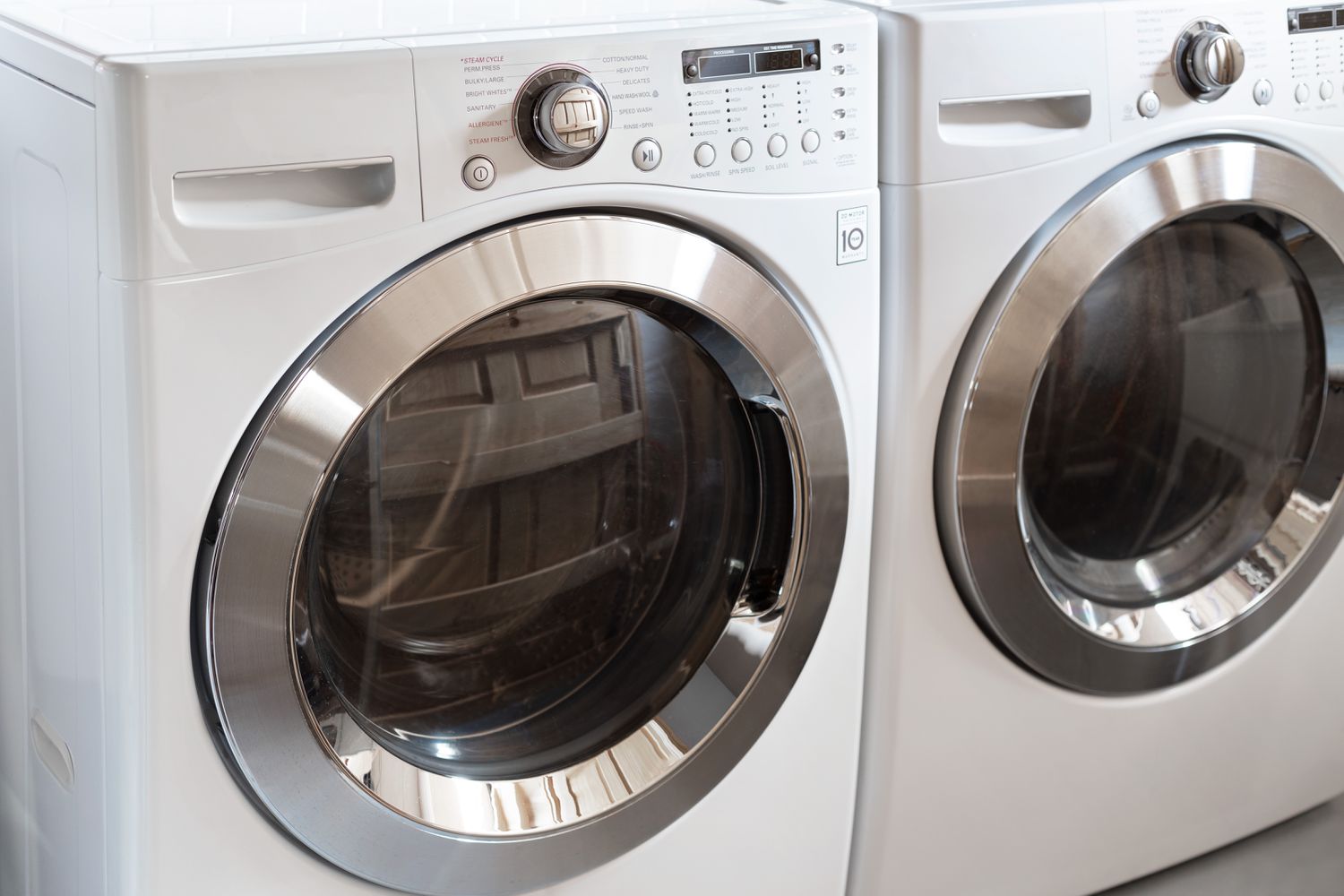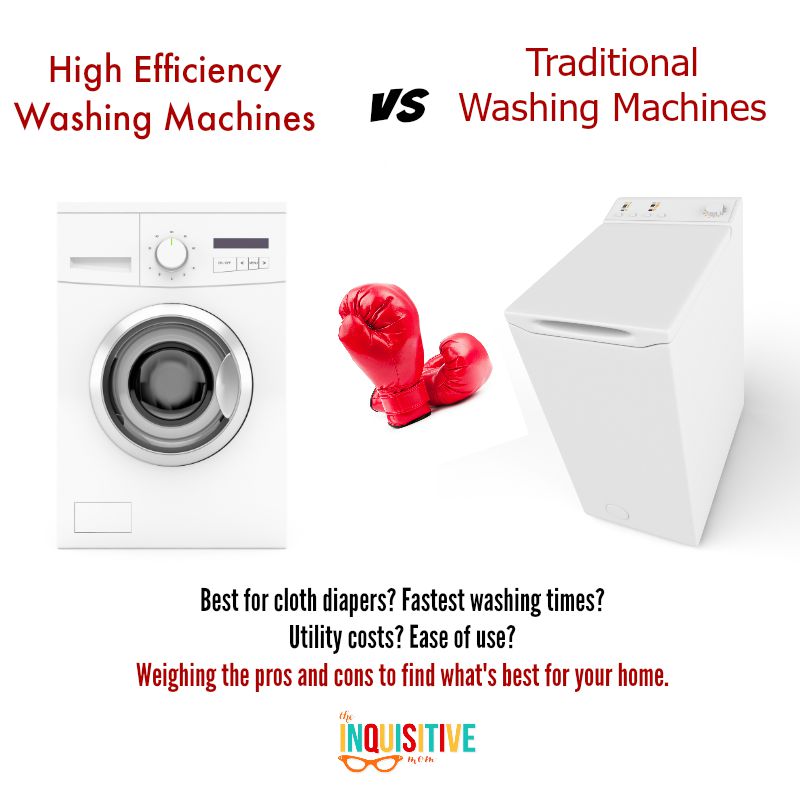Unraveling the Mystery: What is a High Efficiency Washing Machine?
Introduction
In today's world, sustainability and efficiency are more critical than ever. Not only do they benefit the planet but they also help you reduce your energy bills. A strong contender contributing to such aspects is the High Efficiency Washing Machine. But what exactly is it, and why should you consider opting for one? This article aims to inform, educate, and guide you about High Efficiency Washing Machines in detail.
What Exactly is a High Efficiency Washing Machine?
High Efficiency, often abbreviated as HE, washing machines are modern laundry appliances that incorporate cutting-edge technology to ensure effective cleaning with reduced consumption of resources. These machines aren't your regular washers, they're proven to be much more efficient and sustainable. Here's what sets them apart:
• Resource Efficiency: Simply put, these masterpieces of technology consume comparatively less water, energy, and laundry detergent compared to their traditional counterparts.

• Innovative Cleaning Action: Instead of the typical agitator-based system, HE machines implement a unique tumbling motion to ensure effective washing of clothes.
• Smart Features: The machines come equipped with advanced sensors that flawlessly manage the amount of water and detergent required to clean clothes based on load size.
• Modified Wash Cycles: HE washing machines offer modified cycles that aid in maximising efficiency and resultantly making them more eco-friendly.
• Upgraded Drum Movements: These washers also come with enhanced drum movements that limit the harsh tumbling of clothes, thereby reducing wear and tear on the fabrics.
In essence, High Efficiency washing machines cleverly minimise resource wastage while offering superior results, thereby emerging as a sustainable laundry solution in modern households.
How Does a High Efficiency Washer Work?
The operational mechanisms of a High Efficiency (HE) washing machine are a departure from those of the traditional washing machine, bringing in greater efficiency and environmental friendliness. Here are the key differences in how a HE washer functions:
- *Tumbling Action*, not an Agitator: Unlike conventional models with an agitator, HE washers imitate a dryer's tumble action to move clothes around. This gentler way of washing is more effective, limits fabric damage, and allows for more clothes to be washed at once.
- *High-Pressure Rinse Cycle*: Rather than soaking clothes in water, HE machines use a high-pressure spray for the rinse cycle, reducing water usage and speeding up the process.
- *Smart Sensor Technology*: HE washers harness the power of technology through sensors that intelligently determine the required volume of water, temperature, and detergent according to the load size.
- *Residue Detection*: The sensors also scan for leftover soap suds in the water and accordingly manage rinse cycles. This ensures that all residues are thoroughly eliminated, guaranteeing clean, fresh laundry every time.
In essence, the major breakthrough of HE washers lies in their capacity to control water, detergent, and energy usage based on the current load. The washer does this by smartly tuning into its internal sensors, offering a completely automated and efficient laundry experience. This not only results in significant water and energy savings but also ensures your clothes are washed optimally and last longer.
Why are High Efficiency Washers Considered Sustainable?
High Efficiency (HE) Washers are deemed sustainable for several reasons. They are designed to operate with minimal waste and maximum efficiency while maintaining exceptional performance, which directly contributes towards environmental conservation. Here’s a detailed rundown on why HE washers are labeled eco-friendly and sustainable:
- Lower Water Consumption: Compared to traditional washers, HE models use less than half the water. By significantly reducing water usage, these machines ease the strain on local water supplies, leading towards sustainable resource management.
- Energy Efficiency: Since HE washers use less water, they also use less energy to heat water. This reduction in energy consumption translates into lower greenhouse emissions, thus contributing towards reduction of global warming.
- Efficient Rinsing and Spinning: The advanced washing mechanism in HE washers enhances spinning efficiency, resulting in shorter drying times. This further decreases energy use and extends the longevity of clothing by reducing wear and tear.
- Optimized Detergent Usage: HE washers utilize specially designed detergents that produce fewer suds, aiding eco-friendly washing. It not only achieves a better clean with less water, but also reduces the amount of chemicals going into our water systems.
By choosing a High Efficiency Washer, one doesn’t just invest in impeccable laundry quality, but also in sustainable living and a greener future. We can comfortably conclude that these innovative appliances are not just about saving costs, but also about respecting and conserving our precious resources.
High Efficiency Vs. Conventional Washing Machines: Which is Superior?
The tug-of-war between High Efficiency (HE) and conventional washing machines doesn't seem to reach an end anytime soon. Each has proliferated with distinguishing attributes, sparking the debate regarding superiority. Let's delve into the pros and cons of each to comprehend their strengths and constraints.
The Pros of Conventional Washing Machines:
- Less Expensive: Traditional washers are typically less costly upfront, making them a viable option for budget-conscious consumers.
- User-Friendly: Their ease of operation endears them to many, particularly the older generation who might be more comfortable with the straightforward design.
The Cons of Conventional Washing Machines:
- High Energy Consumption: They use a significant amount of water and electricity, thus not being the ideal choice for energy conservation.
- Limited Capacity: These washers usually house a smaller washing capacity, requiring more cycles for a hefty laundry load, and consuming more time and resources.
The Pros of High Efficiency Washing Machines:
- Enhanced Efficiency: HE washers are highly energy and water-efficient, reducing utility bills and contributing to environmental conservation.
- Larger Capacity: Most HE washers have larger washing drums, facilitating more clothes in one cycle, saving time, and energy.
The Cons of High Efficiency Washing Machines:
- Increased Initial Investment: Although they offer long-term cost savings, the initial purchase cost of an HE washer is comparatively higher.
- Learning Curve: As they come equipped with advanced technology and features, operating an HE washer might require a bit of adaptation and understanding.
In conclusion, while traditional washers may win in terms of initial cost and simplicity, HE washers outshine with their long-term cost savings, larger capacity, and sustainable features. Ultimately, the superior choice depends on your budget, laundry requirements, and environmental consciousness.
Tips for Maximizing the Efficiency of Your High Efficiency Washer
Making the most of your High Efficiency (HE) washing machine involves strategic use and maintenance to ensure it operates at peak performance. Here are some useful tips to help you do just that:
1. Right Detergent: HE washers require HE detergents. Compared to regular detergents, HE detergents are designed to produce fewer suds, making them ideal for low water machines. So, look for the HE symbol when buying detergents.
2. Washer Load: Avoid overloading your washing machine. Overfilling the drum can decrease the washer's efficiency as clothes might not be evenly distributed and thoroughly cleaned. So, load it to the recommended level as per the machine's capacity.
3. Wash Settings: Use appropriate wash settings based on the load type and size to boost performance. Modern HE washers offer various customized settings, allowing you to choose the most suitable option for different materials and dirt levels.
4. Regular Cleaning: Keep your washer clean by routinely cleaning the drum and dispensers. Some HE washing machines even have a self-cleaning feature, but manual cleaning every few months can still be beneficial.
5. Water Temperature: Consider using cold water for washing. Today's leading detergents are designed to work efficiently in cold water, allowing you to save energy without compromising washing quality.
By following these guidelines, you can ensure your HE washer runs effectively and sustainably, providing optimal wash results while saving water and energy.
Conclusion
Embracing High Efficiency Washing Machines can be a big step towards not just reduced energy consumption and water conservation but also considerable long-term savings. They might demand a high initial investment but pay off with their ultra-efficient features and sustainable operations.
Related FAQs about what is a high efficiency washing machine
Why should I consider switching to a High Efficiency Washing Machine?
Switching to a High Efficiency Washing Machine offers a number of advantages such as reduced water and energy usage, superior cleaning performance, and sustainability. It maximizes effectiveness while minimizing resource utilization. Furthermore, these appliances generally have larger capacities and smart features for enhanced functionality and convenience.
How does using a High Efficiency Washer save energy and water?
A High Efficiency Washer uses technological advances for efficient usage of water and energy. It uses about 50% less water by utilizing a high-pressure spray technology during the wash and rinse cycles. The state-of-the-art sensors in these machines also help to adjust the water level and temperature according to the load size - contributing to energy savings.

What household maintenance is required for High Efficiency Washers?
High Efficiency Washers require regular maintenance to function optimally. This includes using the right HE detergent, avoiding overloading, adjusting wash settings based on the load, and routine cleaning of the drum and dispensers. Some models have a self-cleaning feature, but manual cleaning every few months can prolong their lifespan and enhance efficiency.


